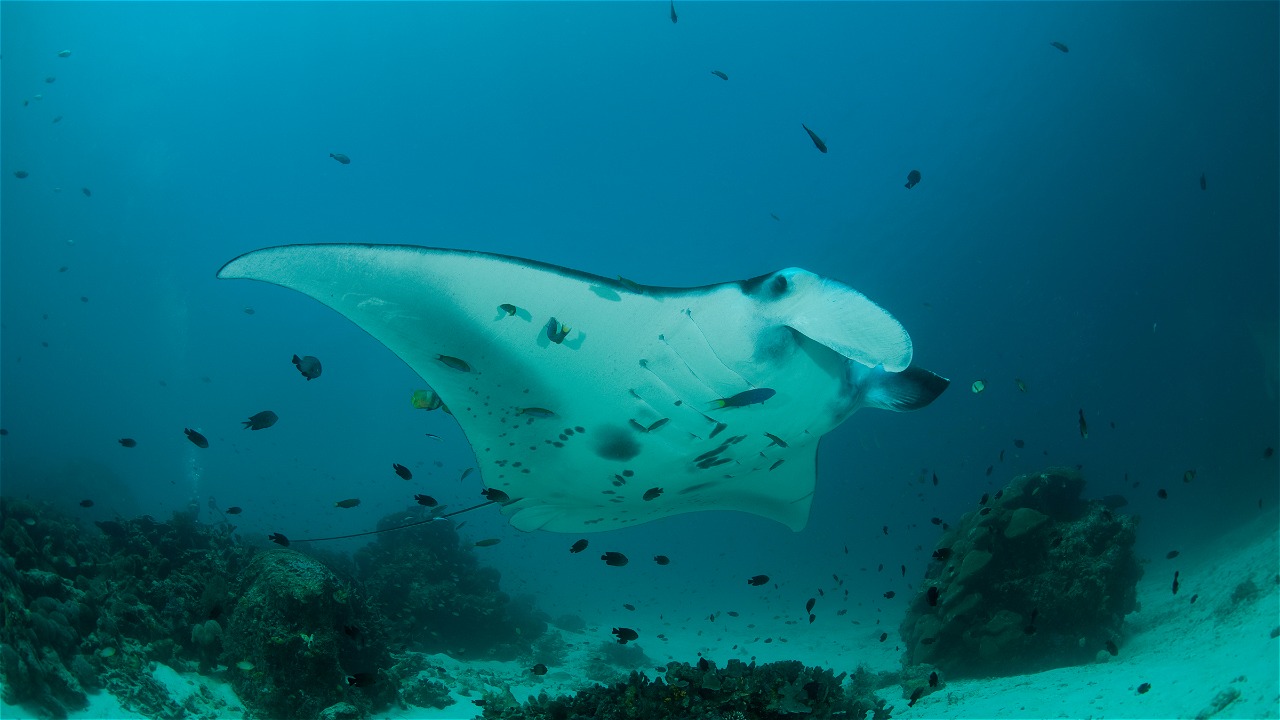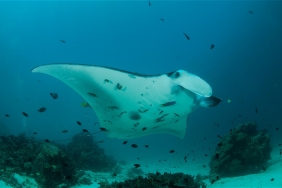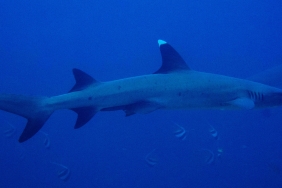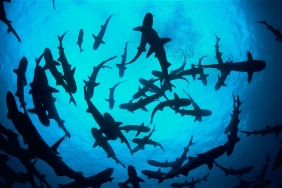MANTA SHARKS AND RAYS ARE NOW OFFICIALLY PROTECTED!
Jakarta - As of September 14, 2014, five species of sharks and two species of endangered manta rays receive enhanced protection from the Convention on International Trade in Endangered Species of Wild Flora and Fauna (CITES), through regulations protecting them from unsustainable fishing activities in international trade markets. Commercial trade will be regulated to ensure sharks and manta rays are legally sourced and harvested using sustainable practices, and that trade does not threaten the viability of their populations.
The seven species were listed on Appendix II following a 2/3 majority vote of CITES ratifying countries, including Indonesia, at a previous meeting. "By giving 18 months before the implementation of this regulation, CITES ratifying countries are expected to make preparations in advance so that the implementation can be carried out properly," said Dr. Colman O Criodain, Wildlife Trade Specialist, WWF-International.
WWF hopes that the CITES regulation can not only be strictly implemented, but also be able to encourage sustainable fisheries management. The population numbers of some of these endangered shark and manta species are already at a level that is actually not worth fishing anymore, it takes time to recover to save these species from the threat of extinction.
Indonesia is home to four shark species and two manta ray species listed in Appendix II of CITES. The shark and manta ray species are oceanic whitetip shark, 3 types of hammerhead shark (scalloped hammerhead, smooth hammerhead, great hammerhead), oceanic manta and reef manta.
In response to this CITES regulation, the Government of Indonesia has issued a policy for the full protection of whale sharks, oceanic mantas and reef mantas; and developed a National Action Plan. In addition, the Ministry of Marine Affairs and Fisheries, through the Directorate of Conservation of Fish Areas and Species (KKJI), is also collaborating with the Directorate General of Forest Protection and Nature Conservation (PHKA) in the preparation of complementary documents in shark fisheries management. "Efforts to develop a management plan at the national level need to be carried out immediately to ensure that the implementation of this CITES ratification can run well and shark populations can be conserved," said Wawan Ridwan, Director of Coral Triangle WWF-Indonesia.
Sharks are apex predators and play an important role in maintaining healthy marine ecosystems. Regulating trade is key to protecting these important species and ensuring the ocean remains productive contributing to food security. It is estimated that 90% of shark populations in some parts of the world are in steep decline. The species is hunted for its fins, meat, skin, liver oil and cartilage. The largest market demand for shark fins comes from Asia, which in turn drives the overfishing that has led to population declines. The fins of the oceanic whitetip and hammerhead are hunted for their high value, while a plate of processed manta ray gill products are sought after for a health tonic in Southern China.
International cooperation is considered very important for the implementation of new CITES measures. The Convention is part of the most important solution to accelerate improvements in fisheries management in island nations. However, it is also crucial to reduce the consumption of shark fins and shark meat. According to Andy Cornish, leader of Sharks: Restoring the Balance, "Despite the CITES listing, there is still no sustainability certification for shark fins on the market, so these products should be avoided."
WWF has initiated campaigns to encourage companies and consumers in several Asian countries to stop buying, selling or consuming shark fins. In May 2013, WWF-Indonesia launched the Save Our Sharks (#SOSharks) campaign to encourage the public to stop the culinary promotion, consumption and sale of shark products in restaurants, hotels, retail, online stores and mass media. The campaign successfully led to the commitment of Garuda Indonesia airlines to issue an embargo policy on shark fin cargo shipments. In addition, the #SOSharks campaign also received support from the DKI Jakarta Provincial Government by issuing a governor's instruction regarding the prohibition of consumption and trade internally in all provincial government staff, and is currently preparing a regional regulation that regulates restaurants or restaurants in Jakarta to stop serving or trading shark products and their derivatives.
Note to Editor:
- Sharks: Restoring the Balance is a WWF and TRAFFIC global initiative to promote sustainable shark fishing, improve international trade regulations for shark products, and reduce consumer demand for shark and manta ray products.
- Sharks.
- For more information on the species and the new requirements, please visit http://www.cites.org/prog/shark.
For more information, please contact:
Dwi Ariyoga Gautama, Bycatch Coordinator, WWF-Indonesia
Email: dariyogagautama@wwf.or.id, Hp: +62 85253440450





